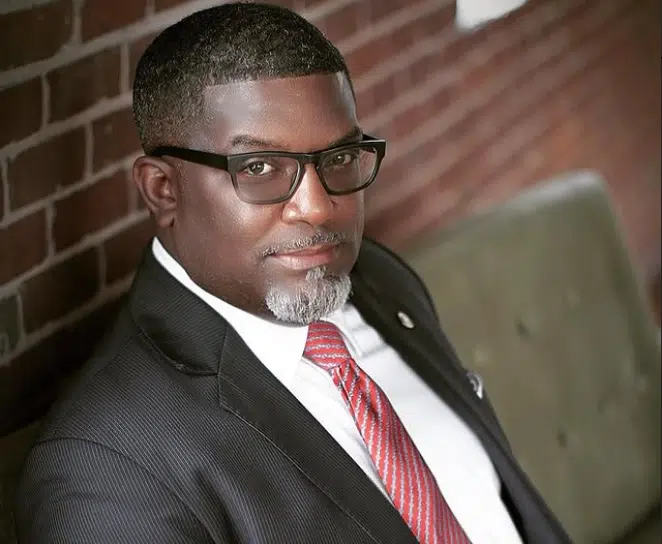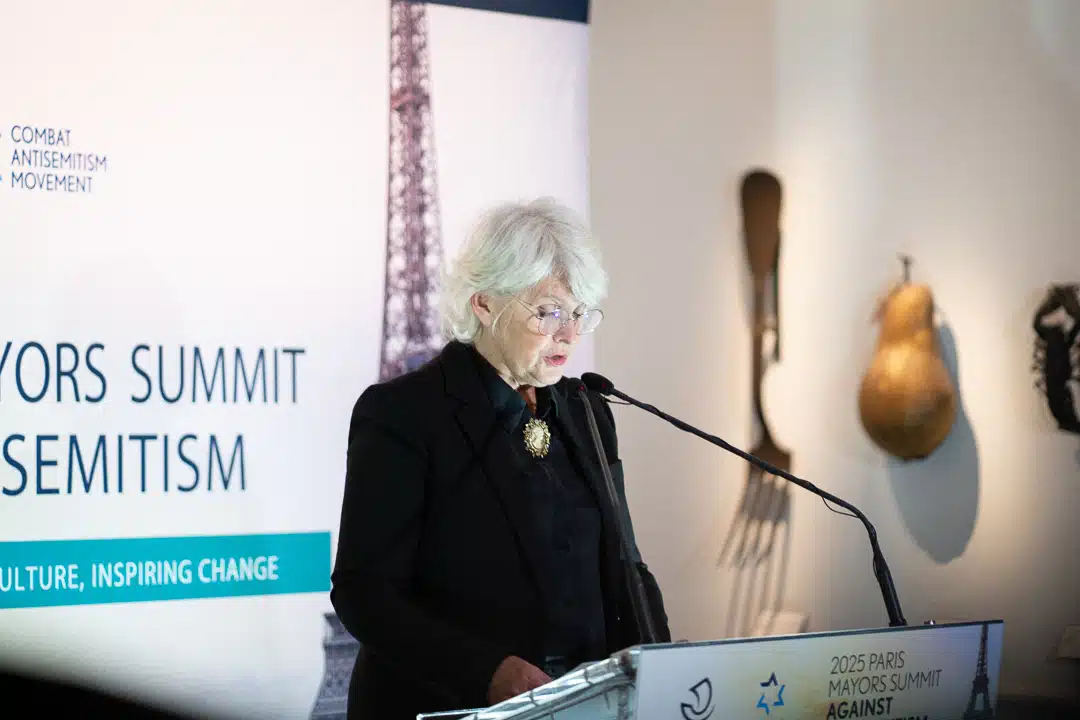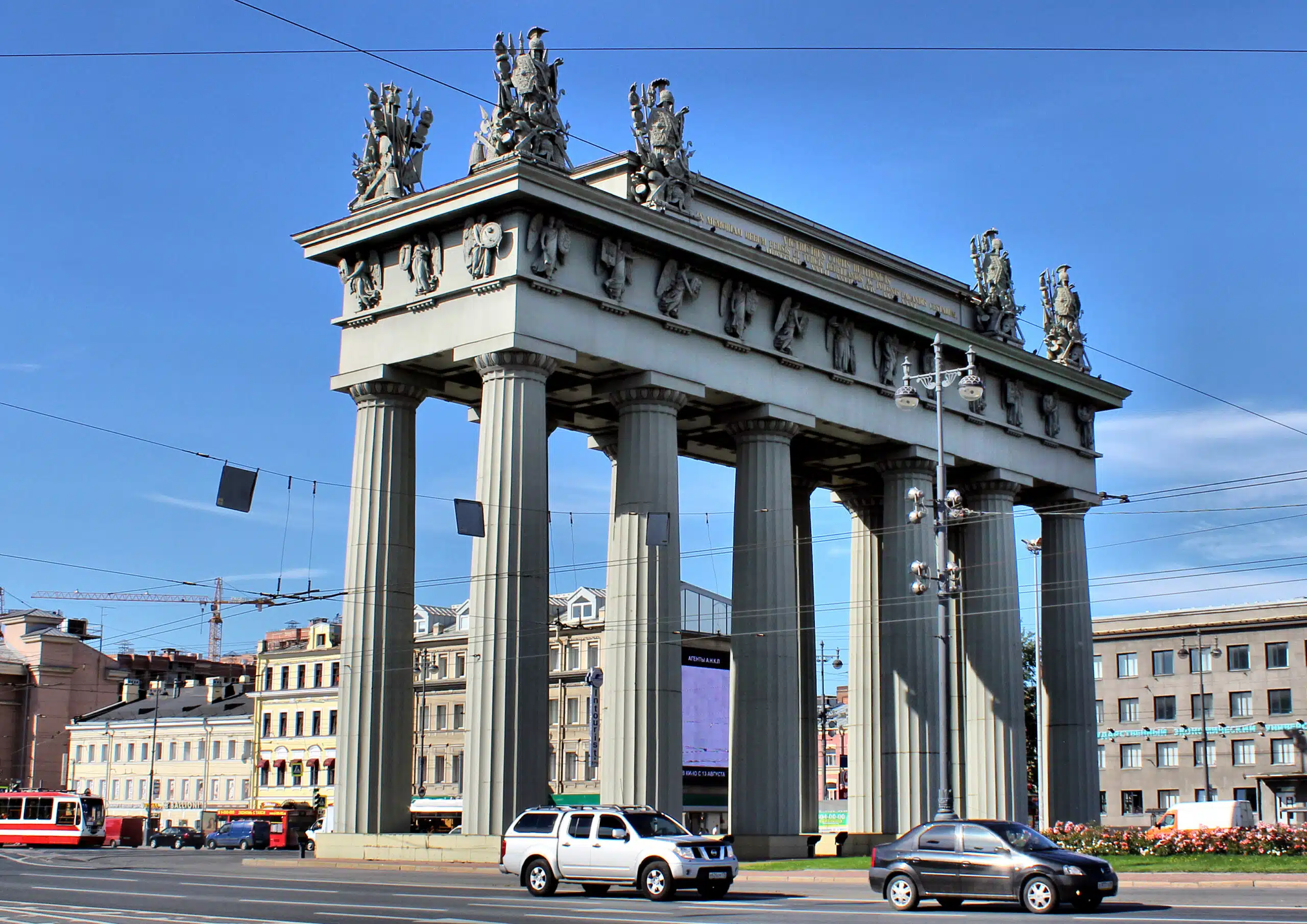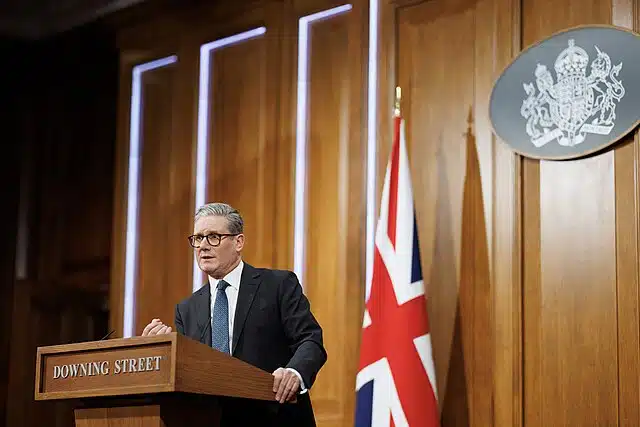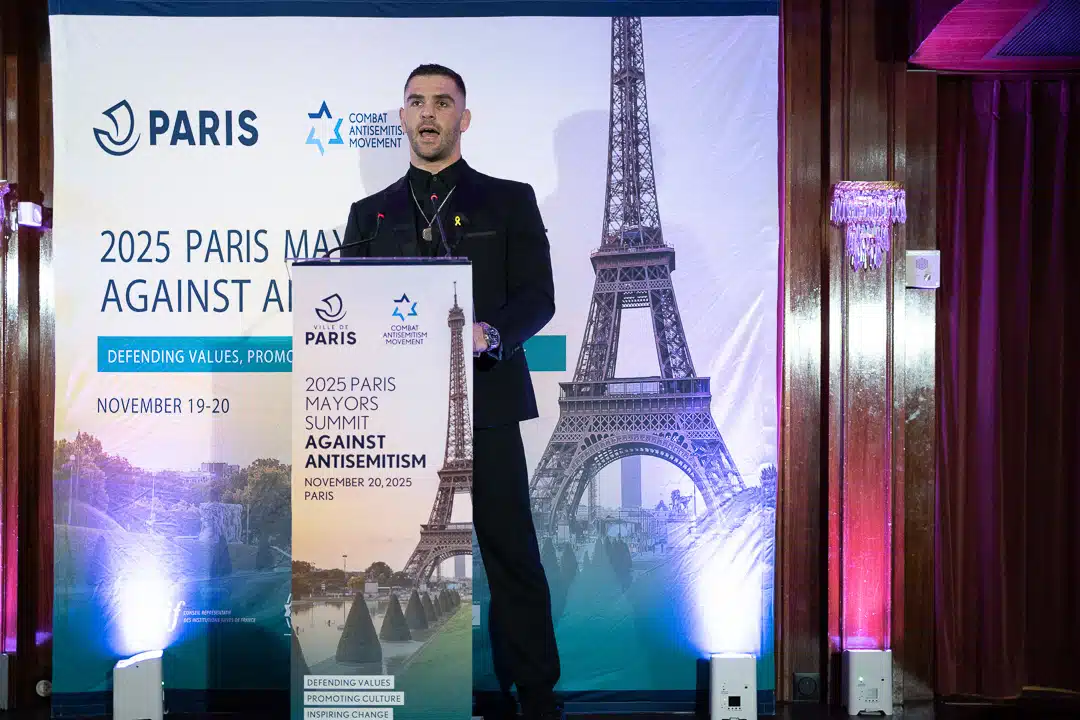
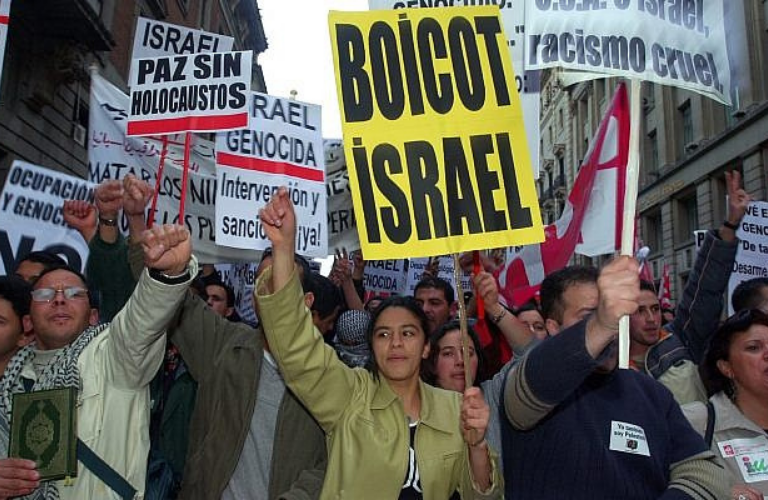
Barcelona Antisemitism Expert Isaac Levy Speaks on Contemporary Prevalence of Jew-Hatred in Spain
Antisemitism has festered in Spain for centuries, long after the infamous expulsion of the country’s Jewish community during the Inquisition in 1492. Over the years, Jew-hatred in Spain has both retained traditional antisemitic motifs and evolved to “fit” modern anti-Zionist prejudices.
The BDS movement has proliferated across Spain in recent times, with certain cities declaring themselves “apartheid-free zones” where any economic or cultural relations with the State of Israel are prohibited. This singular targeting of the world’s only Jewish state reveals the insidious extent of antisemitism in Spain’s public sphere.
Serving as the head of the International League Against Racism and Antisemitism (LICRA) in Barcelona since 2014 and recently finishing his master’s thesis on the prevention against radicalization at the Department of Sociology and Politics at the University of Barcelona, Isaac Levy — who is also the commissioner of the memory of the Shoah and the fight against antisemitism of the Comunidad Israelita de Barcelona (CIB) — has written a new book (available in Spanish) titled — “Anti-Zionism: A Hate Speech of Contemporary Antisemitism?”
Levy sat down with the Combat Antisemitism Movement (CAM) to speak about his latest work and his efforts to address antisemitism in Barcelona.
What inspired you to write “Anti-Zionism: A Hate Speech of Contemporary Antisemitism?”
I completed my master’s degree in Prevention Against Radicalization within the Sociology and Politics faculty at the University of Barcelona and the book was my master’s thesis for the completion of the program. A professor of mine inspired me to write about contemporary antisemitism and how anti-Zionism is antisemitism according to how it plays out in real cases. This conversation with my professor at university reminded me of my son telling me that one of his high school teachers said to a class full of students that “the Jews are doing the same thing to the Palestinians that the Nazis did to the Jews,” which is clearly not based on fact and is obviously antisemitic.
What worries you most about contemporary antisemitism? How does it compare to “traditional antisemitism”?
What I call “contemporary antisemitism” is more commonly known as anti-Zionism, but anti-Zionism isn’t the criticism of Israel, it’s the denial that Israel should exist as a state. This contemporary antisemitism masked as anti-Zionism is only increasing, especially due to the spreading of misinformation. Media sources distort the Arab-Israeli conflict to fit it within a political narrative that is slanted against Israel with Palestinians always being depicted as “good” and Israelis always being the “bad guys,” with the most popular accusation that Israel kills innocent Palestinian children. Journalists that do report the conflict accurately and without a political slant are threatened by anti-Zionists, whether they are Jewish or not.
I’m very worried about people who are ignorant of the conflict speaking about it as if they are experts. The BDS movement in Spain is very strong and connected with the far-left wing political party, which is in the current government. The journalist from TV3 (Clara Basiana) that said those antisemitic statements against the Israeli swimmers is a member of this far-left wing party that holds incredibly anti-Israel and antisemitic views.
The Jewish community in Barcelona is very small, but the community experiences intense antisemitism no less. Synagogues are attacked with “Free Palestine” graffiti and noticeably Jewish citizens, by name or dress, are openly harassed in the streets in the name of anti-Zionism, or contemporary antisemitism. There is a movement called “Barcelona Against Apartheid” that calls to cancel the sister-city relationship between Barcelona and Tel Aviv. I want to communicate to people that Jews are just like other residents of Barcelona and are not foreigners. I have even been told that I look “European” since I have blond hair and blue eyes, but my name gives me away as a Jew.
What were your reactions to the rise in antisemitic attacks online and on the streets, primarily in the Western world? Is there anything we can do to stop this from gaining more traction?
In Spain, antisemitism and ignorance exists even if the Jewish community is incredibly small, so in areas where there are larger Jewish communities of course Jews are a much bigger target. Unlike in countries like the United States, Jew-hatred in Spain has its roots in Christian antisemitism that sees Jews as the “killers of Jesus,” but anti-Zionism is a much more common form of antisemitism today.
The most important thing for future generations is that our children are properly educated about Judaism as well as the Arab-Israeli conflict, but also that the global Jewish community remains open with society so that the non-Jewish world sees that Jews are normal people just like them. We cannot be afraid to openly identify as Jews and interact with those outside the Jewish community. Also, building relationships with international organizations would be helpful in exposing the world to the Jewish people.
Do you have any future hopes for your book and the future of fighting contemporary antisemitism?
I plan to translate my book from Spanish to English for a broader audience, but I would like to see how it does in Spanish. I would like to engage with more people about how contemporary antisemitism is anti-Zionism and how that negatively impacts the Jewish community not just in Barcelona, but around the world. We need to teach people the truth about Israel, remind people that Israel is a democratic country, and that Jews are more similar to their neighbors than they are to the lies spread by antisemites.


